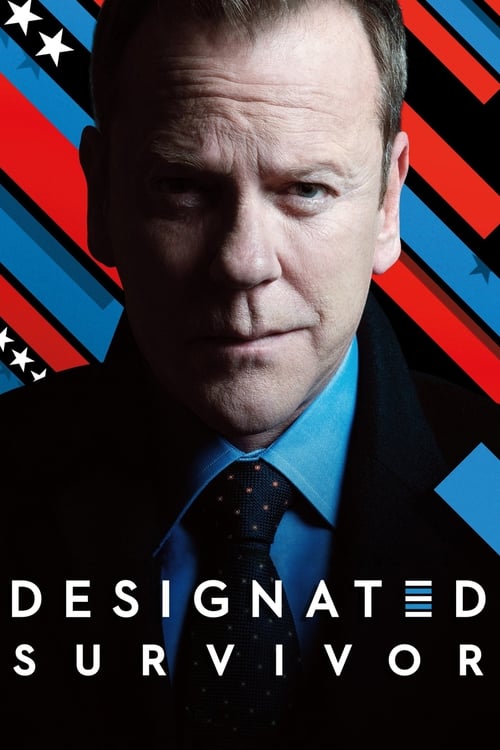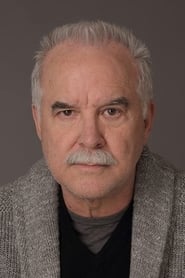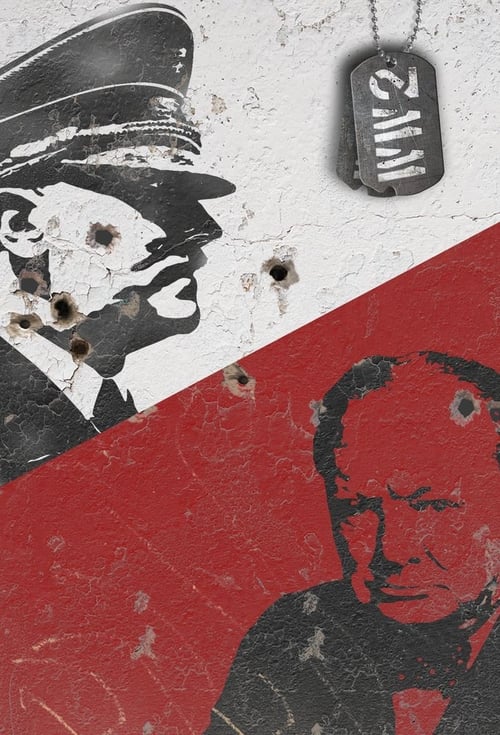
Ask Your Own Question
What is the plot?
In the pilot episode of "Designated Survivor," a catastrophic attack occurs during the State of the Union address, resulting in the deaths of the President, Vice President, and most of the Cabinet. Tom Kirkman, the Secretary of Housing and Urban Development, is the lowest-ranking member of the Cabinet present and is suddenly thrust into the role of President of the United States. He is in shock as he learns about the attack while at his home, where he was preparing to watch the address with his wife, Alex, and their two children, Leo and Penny.
As Kirkman is sworn in as President, he grapples with the enormity of the situation. He is immediately faced with the challenge of maintaining order and addressing the nation. He is advised by his Chief of Staff, Aaron Shore, and his new National Security Advisor, Emily Rhodes. Kirkman struggles with his inexperience and the weight of leadership, especially as he is thrust into a crisis with no preparation. He decides to address the nation, delivering a speech that emphasizes unity and resilience.
In the aftermath of the attack, Kirkman learns that the FBI is investigating the bombing. He is informed that the attack was likely coordinated by a terrorist group. Meanwhile, Kirkman's family is in a state of fear and confusion, as they are now living in the White House under constant security. Kirkman's son, Leo, is particularly troubled by the sudden changes in their lives and the loss of his father's previous role.
As the investigation unfolds, Kirkman faces pressure from various political factions, including the military and Congress, to respond decisively. He is confronted by the Chairman of the Joint Chiefs of Staff, General Harris, who advocates for a military response. Kirkman, however, is hesitant to escalate the situation without concrete evidence. He seeks to understand the motivations behind the attack and the identity of the perpetrators.
Kirkman's administration begins to uncover leads that point to a group called the "Khalid," which is believed to be responsible for the bombing. As they dig deeper, they discover that the attack was more complex than initially thought, involving a conspiracy that reaches into the highest levels of government. Kirkman's team works tirelessly to piece together the puzzle, leading to a series of tense meetings and discussions about national security.
In a pivotal moment, Kirkman decides to meet with the leaders of Congress to gain their support and present a united front. During this meeting, he faces skepticism and criticism from some members who question his ability to lead. Kirkman stands firm, emphasizing the need for a collaborative approach to address the crisis. His determination to prove himself as a capable leader begins to earn him respect, albeit slowly.
As the investigation progresses, Kirkman's team discovers a potential lead on a suspect named Nasir, who is believed to have connections to the bombing. They conduct a high-stakes operation to apprehend him, which involves a tense standoff. Kirkman must make a critical decision about whether to authorize the use of force to capture Nasir, weighing the risks against the potential for further violence.
In a dramatic turn, Kirkman learns that there is a mole within his administration, feeding information to the terrorists. This revelation shakes his trust in those around him and adds another layer of complexity to his leadership. He must navigate the treacherous waters of betrayal while trying to maintain stability in the country.
As the season progresses, Kirkman faces numerous challenges, including political maneuvering from his opponents, personal struggles with his family, and the ongoing threat of terrorism. He develops a close working relationship with Emily Rhodes, who becomes a key advisor and confidante. Their bond deepens as they navigate the complexities of governance and personal loss.
In the season finale, Kirkman confronts the mastermind behind the attack, leading to a tense showdown that tests his resolve and leadership. He must make a choice that could have far-reaching consequences for his presidency and the nation. The season ends on a cliffhanger, leaving viewers eager to see how Kirkman will continue to navigate the challenges of being the Designated Survivor.
What is the ending?
In the final episode of "Designated Survivor," President Tom Kirkman faces a critical moment as he navigates a political crisis and personal challenges. The series concludes with Kirkman making a decisive choice about his future, while key characters find resolution in their arcs.
As the episode unfolds, President Tom Kirkman is confronted with the fallout from the assassination attempt on him and the ongoing threat from the conspirators. He grapples with the implications of his presidency and the moral dilemmas that come with it. Meanwhile, his relationship with his family and his closest advisors is tested as they navigate the treacherous political landscape.
In the climax, Kirkman must decide whether to run for re-election, weighing the risks and responsibilities of leadership against his personal desires. He ultimately chooses to embrace the challenges of his role, signaling his commitment to the country and his belief in the democratic process.
As the series wraps up, several key characters reach their own conclusions. Emily Rhodes, Kirkman's Chief of Staff, finds her own path as she contemplates her future in politics. Agent Hannah Wells, who has been a relentless pursuer of justice, faces the consequences of her actions but remains steadfast in her commitment to uncovering the truth. Meanwhile, Kirkman's family, including his daughter and son, come to terms with the sacrifices that come with being in the public eye.
The series ends on a hopeful note, with Kirkman standing firm in his resolve to lead the nation, embodying the ideals of resilience and integrity.
As the final episode of "Designated Survivor" begins, the tension is palpable in the Oval Office. President Tom Kirkman, portrayed with a mix of determination and vulnerability, sits at his desk, surrounded by advisors who are anxious about the political landscape. The assassination attempt on him has left the nation in turmoil, and Kirkman feels the weight of the presidency pressing down on him. He knows that every decision he makes could have far-reaching consequences.
Scene shifts to the West Wing, where Emily Rhodes, his Chief of Staff, is pacing back and forth, her brow furrowed with concern. She is deeply invested in Kirkman's success, and her loyalty is evident as she urges him to consider the implications of running for re-election. Emily's internal struggle is clear; she wants to support Kirkman but is also aware of the personal toll it takes on him and their team.
Meanwhile, Agent Hannah Wells is on a mission of her own. She is determined to uncover the truth behind the conspiracy that has threatened Kirkman's life. In a tense scene, she confronts a key informant, her resolve unwavering as she seeks justice. The stakes are high, and Hannah's fierce dedication to her cause showcases her character's evolution throughout the series.
Back in the Oval Office, Kirkman is faced with a critical decision. He reflects on his journey from a low-level cabinet member to the President of the United States. The camera captures the flicker of doubt in his eyes, but also a growing sense of purpose. He understands that leadership is not just about power; it's about making difficult choices for the greater good.
As the episode progresses, Kirkman holds a press conference, where he addresses the nation. The scene is charged with emotion as he speaks candidly about the challenges he has faced and the importance of unity in a divided country. His sincerity resonates with the public, and the moment serves as a turning point for his character, showcasing his growth and commitment to his role.
In the final moments, Kirkman makes his decision. He announces his intention to run for re-election, a choice that signifies his acceptance of the responsibilities that come with the presidency. The scene is filled with a sense of hope and determination, as he stands resolute, ready to face whatever challenges lie ahead.
As the series draws to a close, we see the fates of the main characters unfold. Emily, having supported Kirkman through thick and thin, contemplates her future in politics, hinting at her own ambitions. Hannah, having uncovered vital information, is left with the bittersweet realization that her fight for justice is far from over. Kirkman's children, witnessing their father's struggles and triumphs, come to terms with the complexities of their lives in the public eye.
The final shot captures Kirkman looking out over the White House lawn, a symbol of his commitment to the nation and the ideals he stands for. The series ends on a note of resilience, emphasizing the importance of integrity, leadership, and the enduring spirit of democracy.
Is there a post-credit scene?
In the TV show "Designated Survivor," there are no post-credit scenes in the traditional sense that you might find in some films or other series. The episodes typically conclude without additional scenes after the credits roll. The focus remains on the narrative and character development throughout the episodes, with each one wrapping up its storylines within the main content. If you have any specific episodes or plot points you'd like to discuss, feel free to ask!
What motivates Tom Kirkman to take on the role of President after the attack?
Tom Kirkman, played by Kiefer Sutherland, is initially reluctant to step into the role of President after the devastating attack that kills his predecessor and most of the government. His motivation stems from a deep sense of duty and responsibility, as he is the only surviving member of the Cabinet. He grapples with feelings of inadequacy and the weight of the nation's expectations, but ultimately, his desire to protect the American people and restore order drives him to embrace the role.
How does the relationship between Tom Kirkman and Emily Rhodes evolve throughout the series?
Tom Kirkman and Emily Rhodes, portrayed by Italia Ricci, share a complex relationship that evolves significantly over the series. Initially, Emily is Tom's Chief of Staff and a close confidante, providing him with political guidance and emotional support. As they navigate the challenges of leadership and personal loss, their bond deepens, leading to moments of tension and vulnerability. Emily's loyalty is tested as she balances her professional duties with her feelings for Tom, culminating in a pivotal moment where she must choose between her career ambitions and her personal connection to him.
What are the key events that lead to the impeachment proceedings against Tom Kirkman?
The impeachment proceedings against Tom Kirkman are set in motion by a series of political scandals and controversies. Key events include the revelation of his administration's involvement in a covert operation that goes awry, leading to public outcry and accusations of misconduct. Additionally, the discovery of a cover-up regarding the assassination of a foreign leader further complicates his presidency. As political rivals and the media amplify these issues, Kirkman faces mounting pressure, forcing him to confront the moral and ethical implications of his decisions while trying to maintain his integrity and the trust of the American people.
What role does Agent Hannah Wells play in uncovering the conspiracy against Kirkman?
Agent Hannah Wells, played by Italia Ricci, is a pivotal character in uncovering the conspiracy against President Kirkman. As an FBI agent, she is initially tasked with investigating the attack that decimated the Capitol. Her relentless pursuit of the truth leads her to discover a deeper conspiracy involving high-ranking officials and shadowy figures. Driven by a strong sense of justice and personal loss, Hannah's investigative skills and determination put her in dangerous situations, ultimately revealing critical information that not only threatens her life but also impacts Kirkman's presidency and the safety of the nation.
How does the character of Aaron Shore influence the political landscape in the series?
Aaron Shore, portrayed by Adan Canto, serves as a significant influence on the political landscape throughout the series. Initially, he is the Deputy Chief of Staff and a trusted advisor to President Kirkman. His character is marked by ambition and a desire to navigate the treacherous waters of Washington politics. As the series progresses, Aaron's motivations shift, and he often finds himself torn between loyalty to Kirkman and his own political aspirations. His relationships with other characters, including his romantic involvement with Emily Rhodes, add layers to his character, showcasing the complexities of political alliances and personal relationships in a high-stakes environment.
Is this family friendly?
"Designated Survivor" contains several elements that may not be suitable for children or sensitive viewers. Here are some potentially objectionable or upsetting aspects:
-
Violence and Threats: The show features scenes of political violence, including bombings and shootings, which can be intense and graphic. The aftermath of these events often includes blood and injury.
-
Political Intrigue and Corruption: The series delves into themes of political manipulation, betrayal, and moral ambiguity, which may be complex and unsettling for younger audiences.
-
Death and Grief: Characters experience significant loss, and there are emotional scenes depicting grief and mourning, which can be heavy and distressing.
-
Tense Situations: The show often builds suspense through high-stakes scenarios involving national security threats, which can create anxiety and fear.
-
Mature Themes: Topics such as terrorism, assassination, and the ethical dilemmas of leadership are explored, which may be difficult for younger viewers to fully understand.
-
Language: There are instances of strong language and adult conversations that may not be appropriate for children.
These elements contribute to a tone that is more suited for mature audiences, making it less family-friendly overall.



























